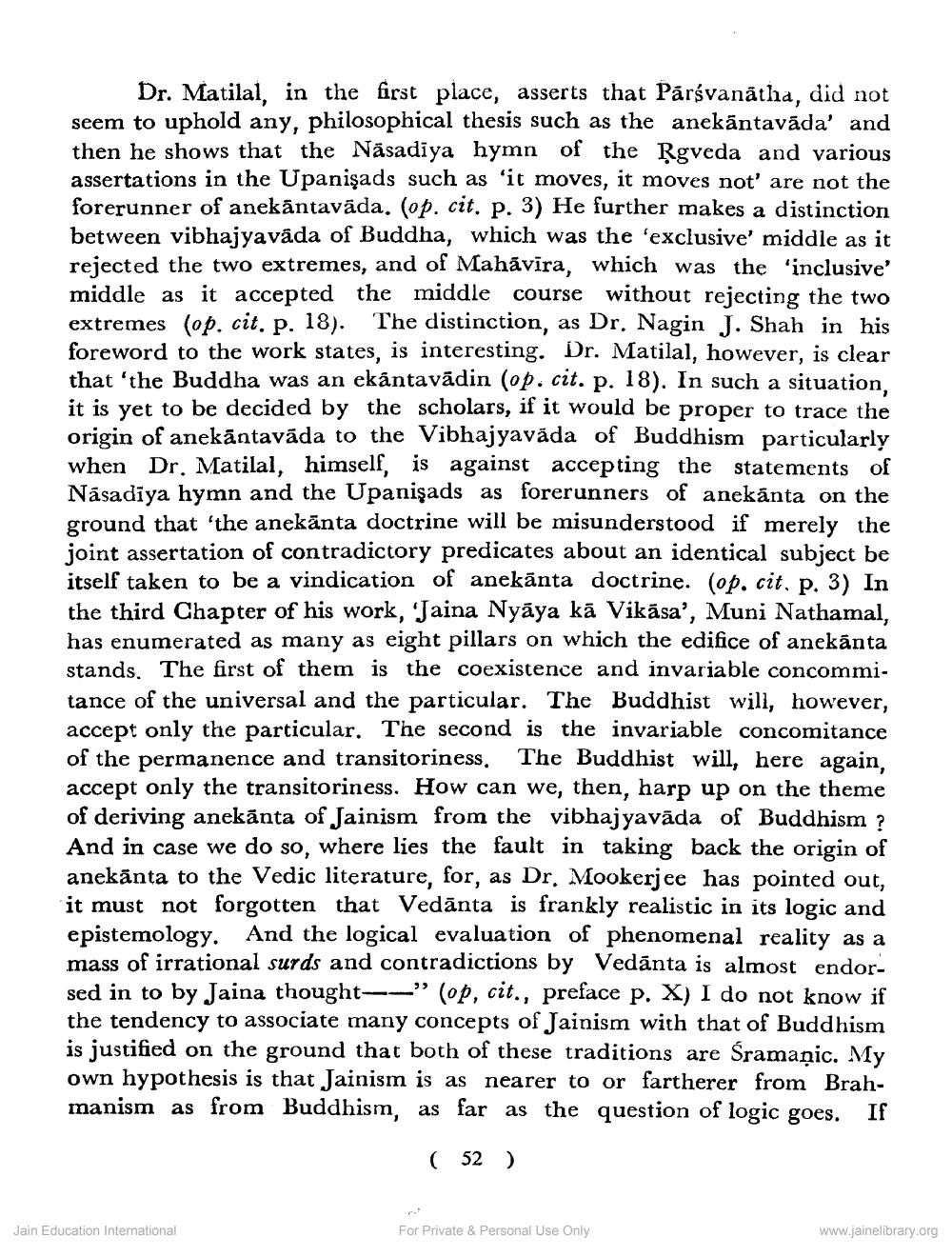________________
Dr. Matilal, in the first place, asserts that Parśvanatha, did not seem to uphold any, philosophical thesis such as the anekantavāda' and then he shows that the Nasadiya hymn of the Rgveda and various assertations in the Upanisads such as 'it moves, it moves not' are not the forerunner of anekāntavāda. (op. cit. p. 3) He further makes a distinction between vibhajyavāda of Buddha, which was the 'exclusive' middle as it rejected the two extremes, and of Mahāvīra, which was the 'inclusive' middle as it accepted the middle course without rejecting the two extremes (op. cit. p. 18). The distinction, as Dr. Nagin J. Shah in his foreword to the work states, is interesting. Dr. Matilal, however, is clear that 'the Buddha was an ekantavādin (op. cit. p. 18). In such a situation, it is yet to be decided by the scholars, if it would be proper to trace the origin of anekantavāda to the Vibhajyavāda of Buddhism particularly when Dr. Matilal, himself, is against accepting the statements of Násadiya hymn and the Upanisads as forerunners of anekanta on the ground that 'the anekanta doctrine will be misunderstood if merely the joint assertation of contradictory predicates about an identical subject be itself taken to be a vindication of anekanta doctrine. (op. cit. p. 3) In the third Chapter of his work, Jaina Nyāya kā Vikāsa', Muni Nathamal, has enumerated as many as eight pillars on which the edifice of anekanta stands. The first of them is the coexistence and invariable concommitance of the universal and the particular. The Buddhist will, however, accept only the particular. The second is the invariable concomitance of the permanence and transitoriness. The Buddhist will, here again, accept only the transitoriness. How can we, then, harp up on the theme of deriving anekānta of Jainism from the vibhajyavāda of Buddhism ? And in case we do so, where lies the fault in taking back the origin of anekanta to the Vedic literature, for, as Dr. Mookerjee has pointed out, it must not forgotten that Vedanta is frankly realistic in its logic and epistemology. And the logical evaluation of phenomenal reality as a mass of irrational surds and contradictions by Vedanta is almost endorsed in to by Jaina thought--" (op, cit., preface p. X) I do not know if the tendency to associate many concepts of Jainism with that of Buddhism is justified on the ground that both of these traditions are Śramanic. My own hypothesis is that Jainism is as nearer to or fartherer from Brahmanism as from Buddhism, as far as the question of logic goes.
If
( 52 )
Jain Education International
For Private & Personal Use Only
www.jainelibrary.org




